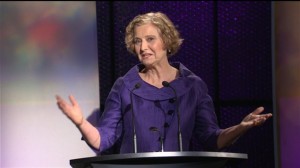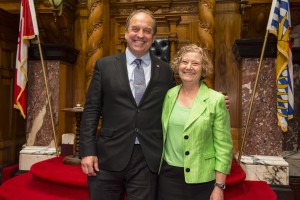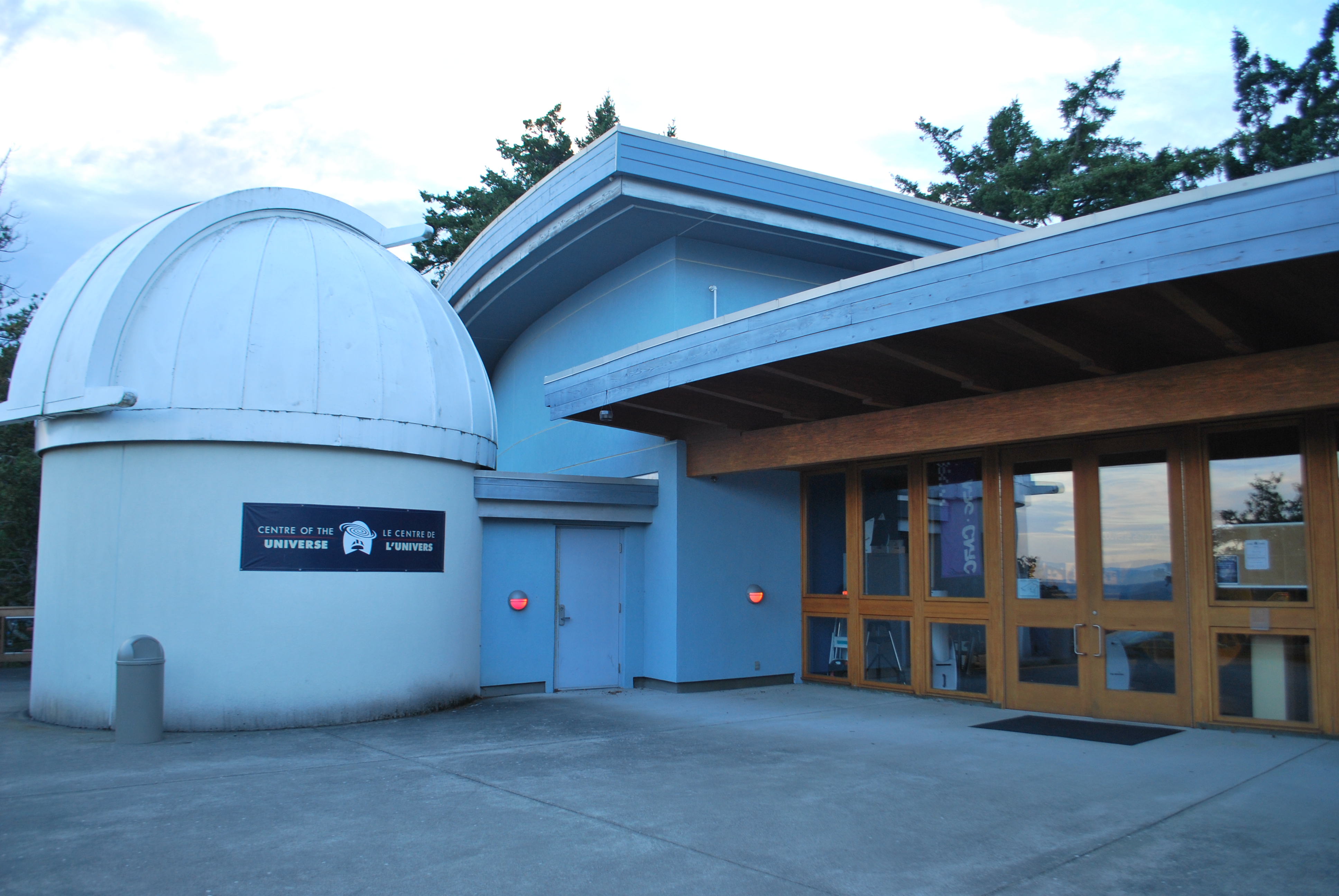Media
Now that climate change is beyond doubt, let’s focus on solving it
Special Op Ed to The Globe and Mail
Published September 28th/2013
We can no longer ignore the facts: Global warming is unequivocal, it is caused by us and its consequences will be profound. But that doesn’t mean we can’t solve it.
On Friday, the International Panel on Climate Change released its Summary for Policy Makers – a 36-page document that is considered to be the most comprehensive assessment of climate science ever published.
We have had six years of new scientific studies since the last IPCC assessment. The report has built on more than 9,200 scientific publications — three-quarters of which have been published since 2007. The conclusions are clear.
Once again, and with more certainty than ever, the IPCC report concludes that global warming is unequivocal and it is extremely likely that we are causing it. How likely is “extremely likely”? According to the IPCC, we can be 95-100 per cent certain that humans are causing global warming. For a cautious, scientific body it doesn’t get more certain than that.
The fact is that scientists have done their job. I can think of no other scientific endeavor that has engaged so many experts, from so many disciplines and from so many countries around the world on one single issue, as the IPCC has. Not just that, but every major national scientific academy in the world has come to the same conclusion.
Now it’s time for politicians – our leaders – to do their job.
In 2009, governments around the world, including Canada, made a commitment to keep global temperature rise to below two degrees Celsius, compared to preindustrial levels. They did that because we know the consequences of unmitigated global warming will be profound from an economic, social and ecological perspective. According to the report, we are failing in that commitment.
Levels of atmospheric carbon dioxide are already higher than at any time in the last 800,000 years and we are on track to take them to levels not seen since the dinosaurs roamed the Earth. In essence, we are turning back the atmospheric clock by tens of millions of years in the span of just a few decades. This trend will lead to the increased occurrence of extreme weather events like Hurricane Sandy, the floods in Calgary and the flashfloods in Boulder, Colo. This rapid rate of change will stress the infrastructure we depend on in our communities and our cities and lead to the widespread extinction of species around the world. And so, I believe, we must take action.
We can and need to do more. While the U.S., the E.U. and even China are making a profound shift to address the root causes of climate change, the Canadian government continues to focus our economy predominantly around the extraction, transportation and combustion of fossil fuels. Even British Columbia, which used to be considered a leader in the development of climate policies, is now moving in the opposite direction with its focus on the development of a Liquefied Natural Gas industry.
The IPCC report could and should inspire us to take a different approach. We could invest in the economy of tomorrow instead of the economy of yesterday.
We could position ourselves as leaders in the clean tech sector — the sector responsible for the generation, transportation, storage and end-use of renewable energy. This is a sector that creates stable, high paying jobs in communities throughout Canada, not just in one or two locations.
We already have the industry, the expertise and the capital, and we were once considered emerging leaders in this area. But now what we lack is clear government leadership. In the U.S., for example, job growth in the clean tech sector is growing at four times the rate of all jobs. And that’s a Jobs Plan you can take to the bank.
The fact is today’s decisions-makers will not be around to experience the full magnitude of the consequences of their inaction. Those will be borne by the youth of today and the children of tomorrow. So, let’s be inspired by the IPCC report and together let’s take the steps now to create the low-carbon economy of tomorrow.
Moving Forward on Green Party Leadership
Media Statement – August 14th 2013
For immediate release
Victoria BC – The announcement by Green Party leader Jane Sterk that she will be retiring at the Annual General Meeting August 24th is an opportunity to build on her legacy.
In addition to seeing Jane Sterk step down as leader, the AGM will also see the election of several new members to the Provincial Council, including 3 Councillors at Large, a Secretary, a Treasurer and a Vice Chair.
According to the party bylaws, the incoming Provincial Council will be responsible for deciding who to appoint as interim leader and when to call for a leadership convention. The interim leader would not be eligible to run for party leader at the leadership convention.
Statement by Andrew Weaver – “ The Green Party under Jane Sterk’s leadership has grown and reached a number of notable milestones, especially in the recent provincial election. It is important that the party continues to build capacity, membership, and riding associations along with policy that reflects the values and aspirations of British Columbians. Leading this process is a full-time job that requires full-time commitment. I have an ambitious agenda for my term as MLA and achieving this requires focus and hard work. I consider it in the best interests of my constituents, the party and the province if, for now, I focus on my role as MLA and support a new interim leader who can concentrate on building the party. The next few years will see many challenges for the province, and possible opportunities for the party should byelections be held. I recognize that in the lead up to the 2017 election, should I decide to seek reelection, and if I am the only sitting Green Party MLA then it would be natural to seek leadership of the party at that time.”
Media Enquiries please contact:
Mat Wright – Press Secretary
mat.wright@leg.bc.ca
Mobile (1) 250 216 3382
Media Release: Jane Sterk Stepping Aside as GPBC Leader
Media Statement – August 13th 2013
For immediate release
Victoria BC: Today long-serving Green Party of British Columbia leader Jane Sterk announced she is stepping aside.
 “I’m retiring from politics and resigning as Leader of the Green Party of BC after the AGM on August 24th. I’ve had a good run and now it’s up to the Party and new leadership to elect more MLAs in 2017. I don’t know what my future holds for me but I’m excited to go on to new adventures.” Jane Sterk
“I’m retiring from politics and resigning as Leader of the Green Party of BC after the AGM on August 24th. I’ve had a good run and now it’s up to the Party and new leadership to elect more MLAs in 2017. I don’t know what my future holds for me but I’m excited to go on to new adventures.” Jane Sterk
During her tenure as leader of the Green Party of BC, Jane Sterk worked hard to strengthen the internal party structure, build the party from the grassroots, and recruit quality candidates around the province to run for office under the party banner. Under her leadership, the party elected its first ever MLA in the 2013 provincial election with the election of renowned climate scientist Dr. Andrew Weaver in the riding of Oak Bay – Gordon Head.
According to the Green Party of BC bylaws, Jane Sterk’s resignation at the AGM will lead to the appointment of an interim Leader, while the Provincial Council determines the date for a leadership contest.
“Jane Sterk set an example of a new style of politics, one that is inclusive, far less divisive and which invigorated the party. We witnessed that in the campaign, especially during the debates; we saw that in how she built the party at the grassroots around the province. She created the template for the party to follow. I wish her well in the future, and thank her for her tireless years of work.” Andrew Weaver
Media Enquiries please contact:
Mat Wright – Press Secretary
mat.wright@leg.bc.ca
Mobile (1) 250 216 3382
Centre of the Universe Should Remain Open
Centre of the Universe Should Remain Open
The decision by the Federal Government to close the Centre of the Universe, the Dominion Astrophysical Observatory interpretive center, at the end of August, should be reversed. The facility provides important education and public outreach, especially for schools and youth summer camps. We also note the loss of five research scientist positions at the site involved with the National Research Council Herzberg Institute of Astrophysics.
 “This is a hard loss for Greater Victoria, the province and all of Canada. There are few facilities that combine public education with active research, making science accessible and interesting, and providing a valuable resource to schools and teachers.” says Andrew Weaver.
“This is a hard loss for Greater Victoria, the province and all of Canada. There are few facilities that combine public education with active research, making science accessible and interesting, and providing a valuable resource to schools and teachers.” says Andrew Weaver.
The cost to maintain the public outreach and education program is estimated at $230 000 annually, compared to the National Research Council operating budget of $900 million.
“This is indicative of the Federal Government putting science funding way down the priority list when all of Canada needs both research, and public science education, to support evidence based policy. The NRC has been refocused to support industry, sidelining pure research and muzzling scientists from speaking. It is a continuation of the Federal government’s agenda against science education and outreach, a slow death of some of our most vital institutions.” says Weaver.
Andrew Weaver is calling on the BC Government, NDP, regional mayors and councilors to call for a reversal of the Centre of the Universe closure decision, and to address their concerns directly to Gary Goodyear, federal minister of state for science and technology.
Video – Andrew Weaver: Economy and Environment are one
 July 3rd, 2013 Andrew Weaver made British Columbia and Canadian history as the first provincially elected Green Party member to speak in the legislature. The BC Liberal government, opposition and independent parties and members are debating the provincial budget in the current summer session, which estimate updates on revenue and spending due over the coming weeks.
July 3rd, 2013 Andrew Weaver made British Columbia and Canadian history as the first provincially elected Green Party member to speak in the legislature. The BC Liberal government, opposition and independent parties and members are debating the provincial budget in the current summer session, which estimate updates on revenue and spending due over the coming weeks.
The BC Liberal government has based medium and long term revenue targets largely on Liquefied Natural Gas (LNG) production and exports, which Andrew Weaver has aptly pointed out throughout the campaign, in the media and now in the House, is predicated on a price, and demand, which might not exist.
To base our economy on LNG is to risk subjecting BC’s economy to the boom and bust roller coaster of global fossil fuel pricing, with all its twists, turns and drops. Meanwhile, investors are increasingly highlighting the possibility of a global carbon bubble and the real economic risks that surround it. To attempt to lay all our eggs in this one basket, on the hope that we will be the one exception — the one jurisdiction that will defy history and economics— is to base our future on very unstable ground.
Yet even if we defy the odds, coast through the boom and bust cycles and breeze through the carbon bubble, we cannot achieve our provincial carbon targets while we double down on LNG. We will have no choice but to abandon our continent-leading, climate commitments. That’s not politics, it’s science. And the numbers just don’t add up. The carbon emissions associated with LNG development are simply too high to allow us to meet those targets.
However, there is a way forward – policies supporting clean technology and energy development – ones that were initiated by a BC Liberal government in 2008, and seemingly abandoned now.
You can watch the Hansard video of Andrew Weaver’s inaugural speech here.









